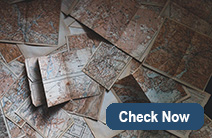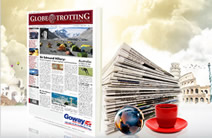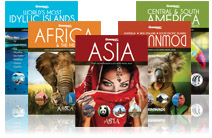Papua New Guinea Frequently Asked Questions
What is the Capital of P.N.G.?
What is the population?
Approximately 5.5 million.
Do we need visas?
Yes, everybody travelling to Papua New Guinea needs a visa. At present, a 60-day tourist visa is available on arrival for citizens of most western countries at either Port Moresby or Mount Hagen, for a cost of 25 Kina. Alternatively, visas can be obtained from any Papua New Guinea embassy or an Australian mission if a P.N.G. embassy is not available in your country of residence.

Are there health regulations?
Visitors travelling from most western countries to Australia, and on to PNG do not require any health certificates. Precautions against malaria are advised. Bottled water is available at all lodges.
What is the best time to travel?
Any time of the year. There are two distinct types of climate in PNG. The lowland and coastal regions are hot with temperatures ranging from 24-35 degrees C and high humidity. The highlands are cooler, averaging between 12-28 degrees C. Although there are dry and wet seasons, it is often difficult to distinguish between them, as it can rain for days in the dry season or stay dry for long spells in the wet season.
What should we take with us?
Travel light and don't forget that mosquitoes are attracted to dark colours, so wear light-coloured clothing. Long-sleeved cotton clothing is recommended on the Sepik River, while a sweater is advisable for evenings in the highlands. Sunscreen and insect repellent are important, as are a couple of pairs of good walking shoes. Don't forget swimsuits as the lodges have swimming pools.
What should we leave behind?
Visitors arriving from Australia will invariably return thereafter visiting PNG. It is advisable to leave heavy baggage in storage before leaving Australia because baggage on Air Niugini domestic flights is limited to 16 kg - 20kg. Other domestic carriers and small private planes can only carry 10 kg of baggage, therefore restrictions are strictly enforced.
What is the food like?
There is no national cuisine and local food is made up of starchy foods. The lodges and hotels, however, have meat, fish and vegetables prepared Australian-style and a variety of tropical fruits are served. Excellent beer is produced locally and there are a fair variety of imported wines and spirits at the lodges and hotels. Papua New Guinea also produces some of the world's best coffee.
What is there to buy?
Papua New Guinea's art and handicrafts are world-renowned. The Sepik River area is known for its unique masks, ornate wooden carvings and pottery. In general, PNG locals do not like to barter, but their prices are not high to start with. Always carry plenty of two, five and ten Kina notes. On returning to Australia it is necessary to declare any wooden items to quarantine officers, who will usually fumigate them.
What about money?
It is best to buy Kina in Australia before arriving, and it is available at Cairns, Brisbane and Sydney airports as well as some city banks and exchange offices. Credit cards and travelers cheques are accepted for payment at lodges and hotels, but visitors should always carry kina in small denomination notes for buying souvenirs and artifacts. The lodges do not carry large amounts of cash.
How do we communicate?
A good question in a land of so many languages and dialects. Most guides understand English, the official national language, but Pidgin is the most commonly used. Pidgin English is an easy language to learn, and Lonely Planet's Papua New Guinea Pidgin Phrasebook is recommended.
What are the expectations with tipping?
Tips are neither expected nor encouraged.
Papua New Guinea Travel Information
At Goway we believe that a well-informed traveller is a safer traveller. With this in mind, we have compiled an easy-to-navigate travel information section dedicated to Papua New Guinea.
Learn about the history and culture of Papua New Guinea, the must-try food and drink, and what to pack in your suitcase. Read about Papua New Guinea's nature and wildlife, weather and geography, and 'Country Quickfacts' compiled by our travel experts. Our globetrotting tips, as well as our visa and health information, will help ensure you're properly prepared for a safe and enjoyable trip. The only way you could possibly learn more is by embarking on your journey and discovering Papua New Guinea for yourself. Start exploring...book one of our Papua New Guinea tours today!
Extend Your Stay
Consider an additional stopover to your Papua New Guinea tours at one of Goway's other South Pacific destinations. You can choose from our selection of Australian vacations, New Zealand vacation packages, Tahiti vacation packages, stay at one of our Fiji resorts or perhaps take a Cook Island vacation. This can be done stopping over en route to or from New Zealand.
 Goway's DOWNUNDER wizards offer many ways to explore, experience and enjoy amazing Papua New Guinea. There are different lodges for different regions, a stay in a Sepik riverboat as well as a luxury small vessel cruising in the region. We can also arrange adventure treks and diving experiences. Let us custom-design what will be your most amazing globetrotting journey.
Goway's DOWNUNDER wizards offer many ways to explore, experience and enjoy amazing Papua New Guinea. There are different lodges for different regions, a stay in a Sepik riverboat as well as a luxury small vessel cruising in the region. We can also arrange adventure treks and diving experiences. Let us custom-design what will be your most amazing globetrotting journey.
Get a Trip Quote Order a Brochure





















